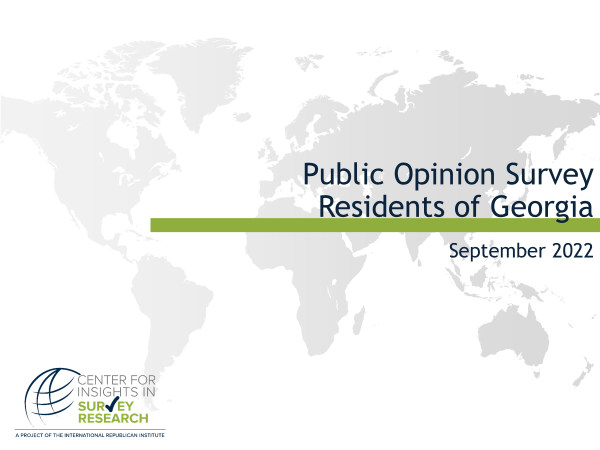The International Republican Institute (IRI) publishes the results new nationwide poll conducted in Georgia. The poll shows strong support for EU membership, disapproval of Russian citizens within the country, and a lack of trust in political parties.
When asked about the European Union (EU), 85% of Georgians either “fully support” or “somewhat support” joining the alliance. Among those who support joining the EU, sixty percent support joining even if it means cutting trade relations with Russia.
“Citizen demand for joining the European Union remains very high,” said Steve Nix, Senior Director for Eurasia at IRI. “Georgians’ desire to join the EU has been remarkably consistent in previous surveys, and this new poll reinforces that position.”
Further, Georgians do not support the presence of Russian citizens within their borders. When asked if they supported Russian citizens entering Georgia freely without a visa, registering a business, or purchasing property, 78% of respondents answered, “none of the above.”
“Our data clearly shows that Georgians oppose Russians fleeing mass military mobilization coming to their country,” said Nix. “The Georgian government needs to take this strong public sentiment under consideration from a policy standpoint.”
The poll also shows that trust in political leaders is low. Forty-two percent of Georgians say no political party represents their interests, and only 15% trust the parties. At the same time, the survey found that 79% believe there should be more youth in Georgian politics.
This survey was conducted on behalf of IRI’s Center for Insights in Survey Research by Dr. Rasa Alisauskiene of the public and market research company Baltic Surveys/The Gallup Organization between September 13 and October 2, 2022. The fieldwork was conducted by the Institute of Polling and Marketing. Data was collected through face-to-face interviews in respondents’ homes. The sample consists of 1,500 Georgians aged 18+ and eligible to vote. The data was weighted for age, gender, region, and settlement size. The margin of error is plus or minus 2.5 percent, and the response rate was 74 percent. This survey was made possible by the support of the American people through the U.S. Agency for International Development (USAID).
